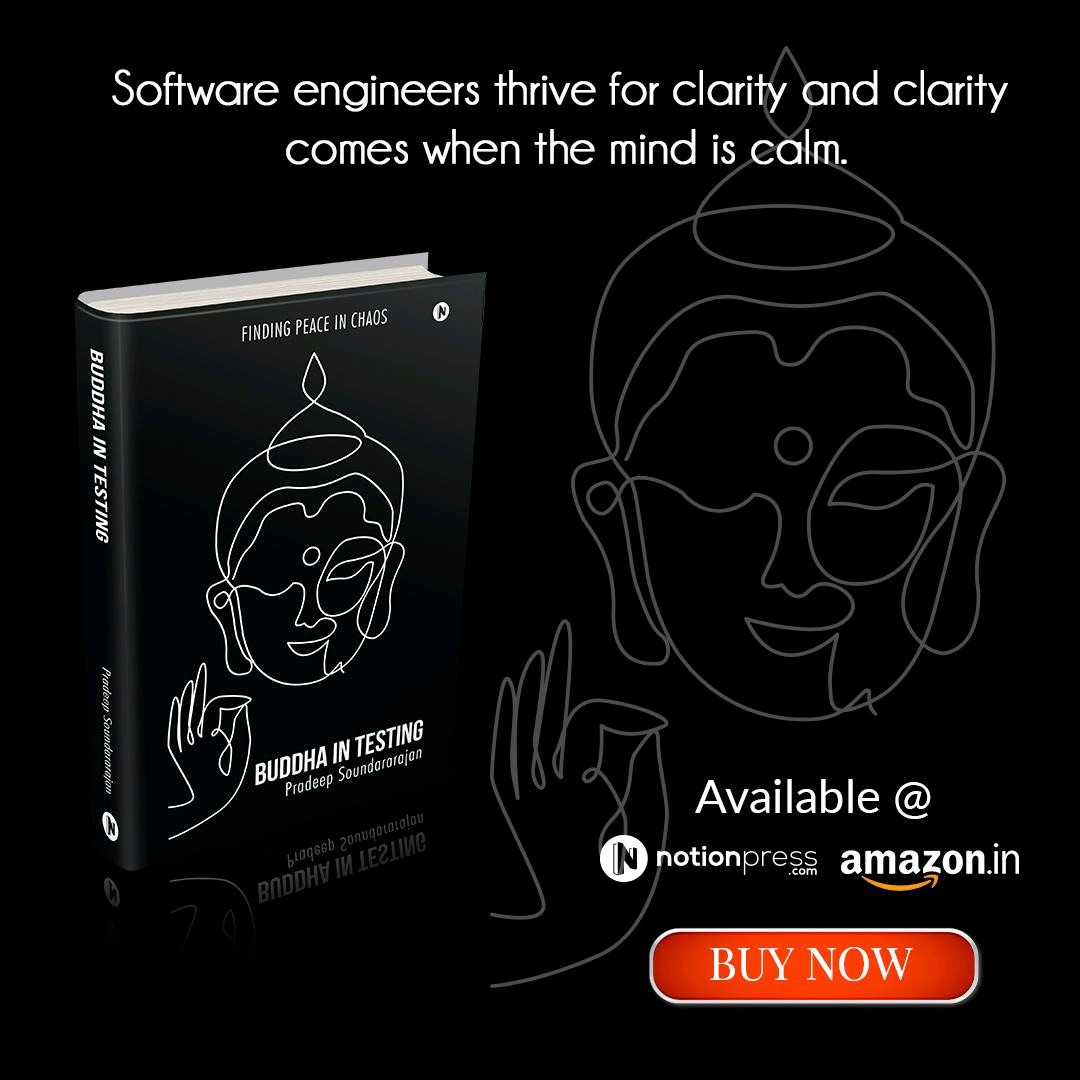I started blogging on my life as a tester in 2006 with the Tester Tested! blog. I was consistent with it for about 9 years. It laid a strong foundation and brought great people to my life. It laid the foundation for me to start Moolya.
I stopped blogging in 2014. I had to focus on Moolya and it was chaotic in 2014. I had to help Moolya grow. I had to let go all things that had captivated me. Some people advised me against stopping the blog. They felt I was cutting off an important lead gen channel for Moolya. True, it was one of the biggest lead channels at that time. Times have changed. In 2020 – the biggest lead gen channel is not my blog. It is the good work we have done over the years and the word of mouth it keeps generating.
Meanwhile, the servant leadership team and the people who have home grown as leaders in Moolya are doing a fantastic job that slowly started keeping me off plenty of things I used to dabble in Moolya. They are so good at what they do that I fear if I intervene I might screw up things. So, they pay me to stay away.
Staying away is what Founder CEOs need to do. This gives them the outside-in perspective to their business. Having been a recipient of the outside in perspective, I have been of some service to my team that has kept me away from things I can potentially screw up.
Meanwhile, I did not stop writing. I did not stop speaking. I used mostly Linkedin and sporadically Quora to share my thoughts. They found pretty good resonance. Several of my posts have pretty good engagement with views ranging anywhere between 20K to 500K (and once 1 Million) and likes and comments ranging anywhere between 50 to 4500 (and once 8K). Most of these were short and neither shallow nor deep content. I couldn’t write a deep story. The platform was distracting me from writing a deep story.
My craving to write deep content had only increased. A particular topic was waiting to come out and find an expression through me. I could not hold on and I had to write. I wrote a book Buddha in Testing mostly in the second half of 2019 and iterated quite a lot it was published and released on 25th Jan 2020. In hindsight writing was easy – iterating it was very difficult. Thankfully, I did not complicate the book. I kept it simple. Thanks to all the practice of writing on LinkedIn.
The book hasn’t done bad. It has touched the right audience I targeted in ways I wanted it to touch. People are now thinking about being calm, solving problems, not getting embroiled in arguments that are not productive and are thinking deeper. They are questioning the fundamentals and are building in a strong foundation in testing. The reviews have been pretty good.
First I thought people are making fun of me with the reviews. It took me a few consistent reviews to understand that they are serious.
What after a book? I love telling stories. Sometimes these stories are neither a short LinkedIn post nor a book. They are blogs and articles. They are deep enough. I want to tell stories that help people unlearn and live an easier life.
I have discovered that culture drives business, product, engineering and hence testing. So this blog, Deep Test, is going to be stories, deep enough to bring out aspects of Culture, Product, Engineering and Testing.
Also Moolya’s official blog is hosted in moolya.com/blog and this one, my personal blog is in moolya.com/deeptest
My blogging principles
- Do not shame / personal attack / challenge – an individual / organization.
- Do not publish unless there is a deep value to the reader.
- Do not argue with people.
- Do not take offence of any comments people may have.
- Do add value to people.
- Be grateful to readers as they are offering a precious thing in their life – time.
- Show good examples to people.
- There are smarter people than me on this planet.
- Maintain simplicity in writing.
Is this blog for you?
There are three ways for you to discover the ocean.
- Snorkelling
- Scuba diving
- Submarine
Snorkelling happens in shallow places. It is beautiful. Some people enjoy it. Has less risks – doesn’t require training – surface level view of the ocean – many people can do it. People who choose to experience the beauty of corals and fishes that live a little deeper prefer Scuba diving. You need training to go deep. Not everyone can do it. This blog, metaphorically, is for Scuba divers in the space of Culture, Product, Engineering and Testing. Good books and blogs that have lived a long time are like a Submarine. It takes you to dark places and puts a light for you to see the life that was never known. Only a few go that deep. That is why you have more people reading short LinkedIn posts than people reading blogs than people reading (and completing) books.
Who are you?
8